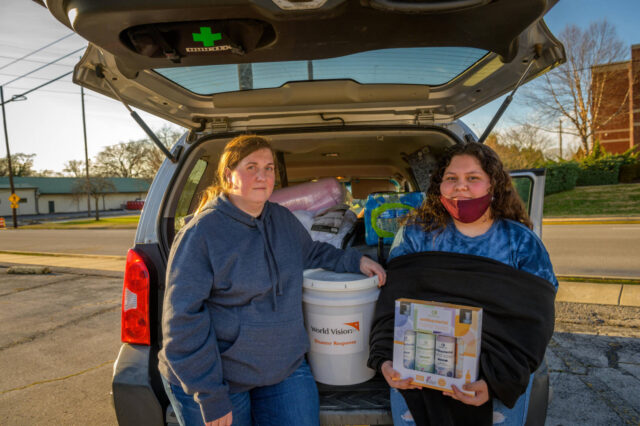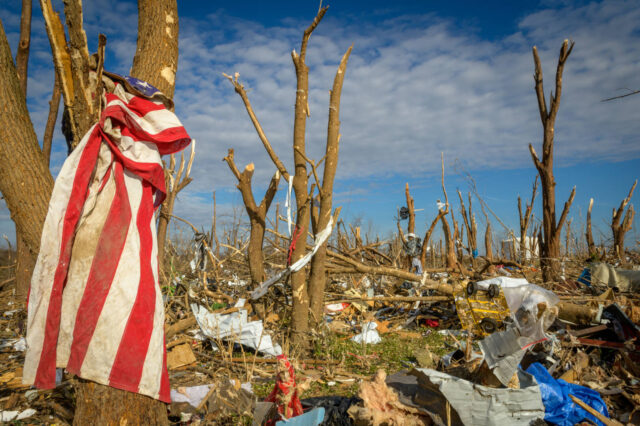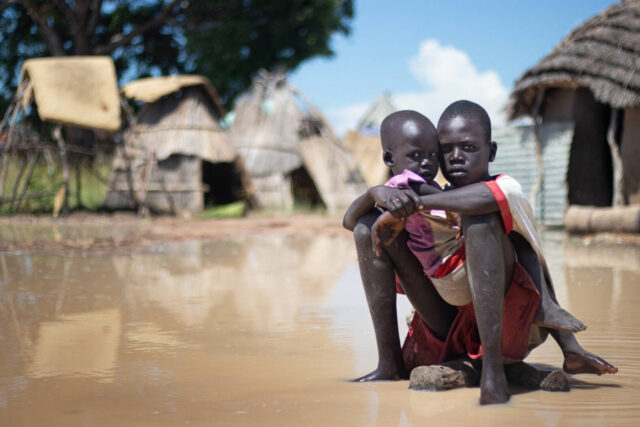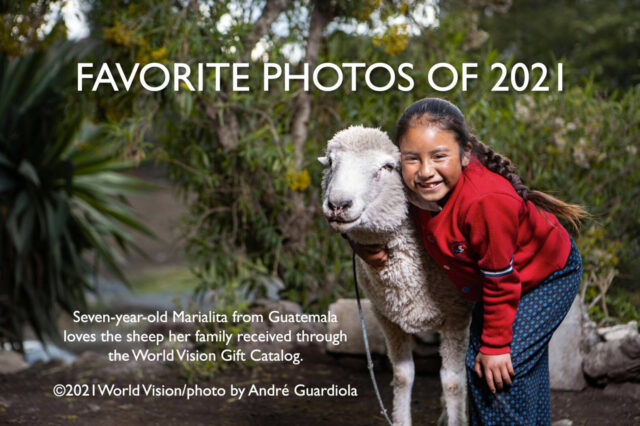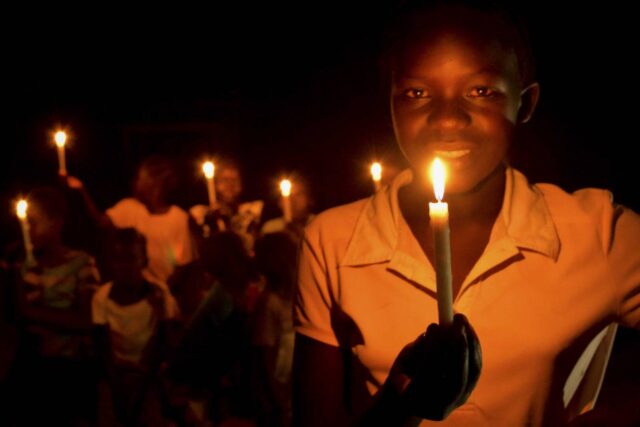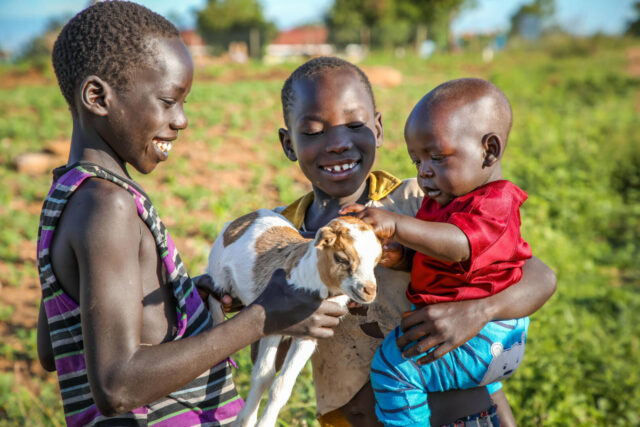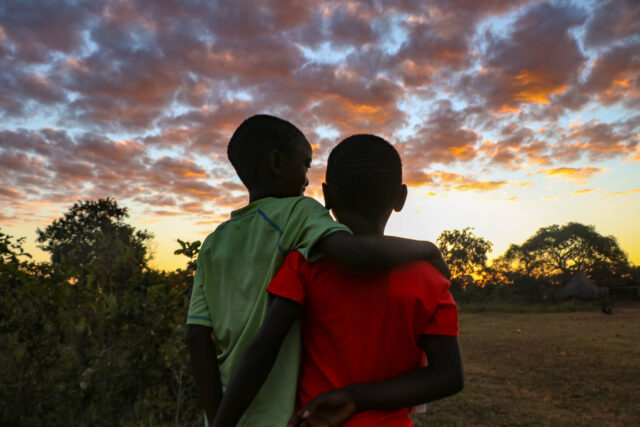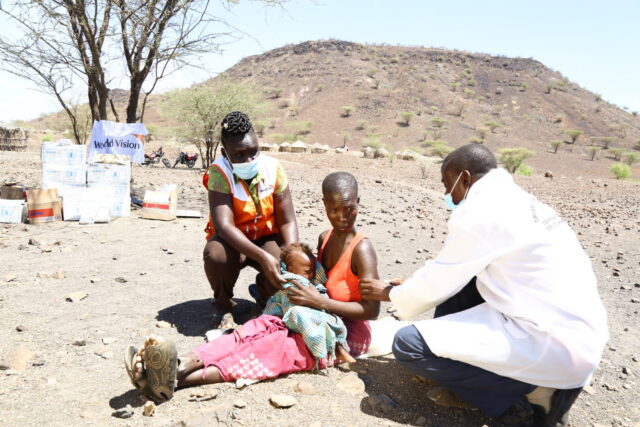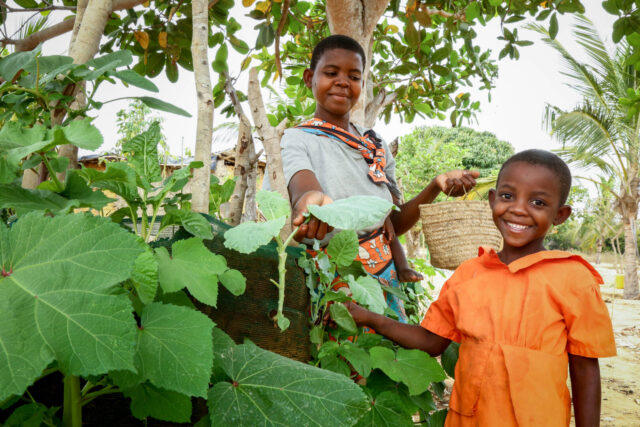A Kentucky tornado survivor knows she’s not alone. A community of volunteers and donors is coming together to support those recovering from the tornadoes that swept through Kentucky and neighboring states.
News & Stories
From the Field
U.S. tornadoes: Facts, FAQs, and how to help
A series of deadly tornadoes devastated more than 200 miles of the U.S. Midwest and South on December 10, 2021, affecting hundreds of thousands in at least six states. Learn more about the tornadoes and what World Vision is doing to help affected families.
10 of the top disasters in 2021
In 2021, World Vision responded to 72 disasters in 52 countries, helping more than 30.1 million people in crisis — in addition to our ongoing global response to the COVID-19 pandemic. Learn more about some of the worst disasters of 2021.
Favorite photos of 2021
In 2021, the world continued to grapple with the COVID-19 pandemic along with wars and political unrest. Refugees and displaced peoples fled violence. Natural disasters spread destruction in their wake. But there were also small and big moments of joy to celebrate. See what World Vision’s communicators captured in this extraordinary year.
Choose joy this season with artisan-made gifts
This Christmas, the World Vision Gift Catalog features new handcrafted gifts in the celebrity-designed, artisan-made collection. Read the stories behind the fair-trade artisans around the world who create these unique gifts.
Finding Christmas joy in a refugee camp
What’s it like to celebrate the holidays when you’re far from home? Refugees in the Bidibidi settlement in Uganda share how they prepare for Christmas while reflecting on Christmases past.
Refugee family finds hope after receiving Gift Catalog goats
A family fleeing conflict in South Sudan lost everything and has started over in a refugee settlement in Uganda. World Vision Gift Catalog goats are helping them rebuild their lives.
Gift Catalog goats open a floodgate of blessings in Zambia
A family was struggling in rural Zambia, but a gift of goats through World Vision’s Gift Catalog changed their lives and allowed them to also bless others. Now their children are dreaming of a bright future.
Racing against the spread of hunger in East Africa
By air, land, and sea, World Vision is racing to deliver emergency food supplies across East Africa for families in need.
Gardens bring joy to communities in Marafa
Because of World Vision’s child sponsorship–funded programs in Marafa, Kenya, flourishing gardens are a living testament to the hope against the spread of hunger.
